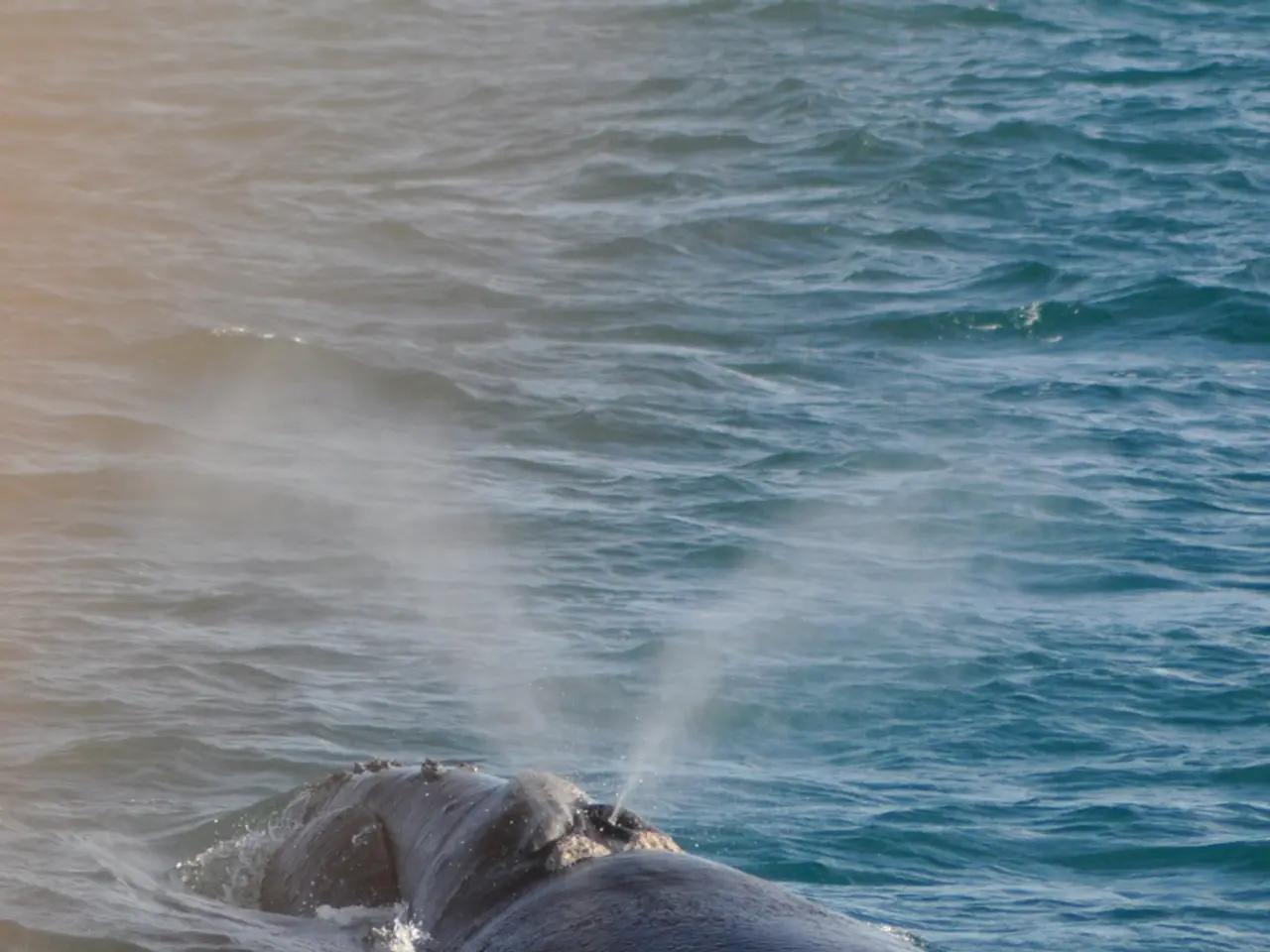Cross-border relocation of colossal marine mammals: a significant endeavor
Three beluga whales, Kharabali, Havana, and Jetta, have made a long journey from Marineland in Ontario, Canada to the Mystic Aquarium in southeast Connecticut. The transfer, which has been a topic of controversy, took place after discussions between the aquarium and Marineland about acquiring some of the park's belugas that started over a decade ago.
Upon landing at the Connecticut airport, Customs and Border Protection agents and U.S. Fish and Wildlife Service inspectors verified the permits were in order. The whales were transported using customized stretchers with holes for their pectoral fins, acting as seat belts, and were accompanied by veterinarians and animal transport experts to monitor their breathing and overall health.
The journey from tank to tank took about 14 hours. Remarkably, the whales, referred to as "troopers", remained calm and communicated with each other throughout the journey. Upon arrival, they were joined by two more whales, Shamu (ages seven to 12), Havok, and Sahara.
The transfer has been challenged by multiple animal welfare and animal rights groups, who argue that it undermines Canada's law and sets a precedent for weaker animal welfare laws. The controversy revolves around concerns over captivity conditions, animal welfare, and the ethics of keeping highly intelligent and social cetaceans in captive environments.
Marineland has faced scrutiny and investigations over animal welfare issues, including poor water quality and questionable treatment of its marine mammals. Critics argue that confining belugas to tanks, even in accredited aquariums, restricts their natural movements, social structures, and behaviors, causing physical and psychological harm.
While facilities like Mystic Aquarium claim conservation benefits from maintaining captive belugas (such as education and research), opponents argue these benefits are overstated since belugas are not endangered and there is no active plan or success record for reintroducing captive belugas to the wild. Hence, captivity mainly serves commercial entertainment rather than true species conservation.
Lori Marino, a neuroscientist and the founder of the Whale Sanctuary Project, believes that Canada's potential ban on cetacean captivity could be a bellwether for the U.S. Camille Labchuck, a lawyer and executive director of Animal Justice, suggests that the belugas in captivity may be the last generation in North America due to the difficulty of breeding this species in captivity and the ban on breeding in Canada.
The whales will soon meet the aquarium's other three belugas and will eventually go on display to the public. Romano, Mystic Aquarium's chief scientist, hopes that the transfer allows the aquarium to provide the belugas with individual medical care and attention, and the opportunity to participate in research to help their wild counterparts. The research projects at Mystic Aquarium are built around priorities listed in the National Marine Fisheries Services' recovery plan for the Cook Inlet beluga whales.
In the wild, there are about 136,000 belugas, living in the Arctic of Canada, the U.S., Russia, Greenland, and Norway. The transfer of these belugas from Marineland to Mystic Aquarium highlights the tension between captivity as a tool for public education/science and the growing evidence of the harms of captivity. It reinforces calls to end cetacean captivity or transition to sanctuary models where the animals live in more natural, less restrictive settings.
The controversial nature of such transfers underlines that captivity remains a deeply disputed method for conserving or caring for belugas, with welfare concerns often overshadowing proclaimed conservation goals.
- The long journey of the endangered beluga whales from Marineland to the Mystic Aquarium has sparked discussions about climate change and its impact on migration patterns of ocean species.
- In the realm of environmental-science and education-and-self-development, the controversy surrounding the transfer of the beluga whales offers a valuable learning opportunity for understanding the complexities of climate change and its influence on wildlife.
- Despite the advocacy from animal welfare groups for the release of captive wildlife into their natural habitat, the transfer of these beluga whales has brought the debate on the balance between conservation and adventure tourism into the limelight.
- Conservationists argue that the benefits of scientific research on endangered species like the belugas, such as the studies conducted by Mystic Aquarium, outweigh the ethical concerns surrounding their captivity.
- As more attention is given to the welfare of captive wildlife, there is a growing push for the adoption of environmental-science in education curricula, emphasizing the importance of our role in preserving the health of the environment and its diverse species.
- Critics of Beluga whale captivity argue that the transfer from Marineland to Mystic Aquarium perpetuates climate change by encouraging travel for entertainment purposes, rather than focusing on reducing carbon emissions and promoting sustainable practices.
- The climate change crisis, with its threat to countless species worldwide, has renewed the call for prioritizing conservation efforts over captivity, with sports enthusiasts encouraged to embrace alternative, environmentally-friendly activities like eco-adventure sports instead.
- In a world grappling with the challenges of climate change, the transfer of beluga whales from Marineland to Mystic Aquarium serves as a reminder of the need for education and self-development in making informed choices that positively impact wildlife and our shared environment.
- The ongoing debates about the ethics of whale captivity and the welfare of endangered species like the belugas raise important questions about our responsibilities towards wildlife conservation, wildlife education, and the promotion of sustainable travel practices.
- As global warming continues to impact the climate and migration patterns of ocean species, scientists and animal welfare advocates urge the public to take action, promoting efforts in conservation, education, and responsible travel to safeguard the future of endangered species and the environment.




